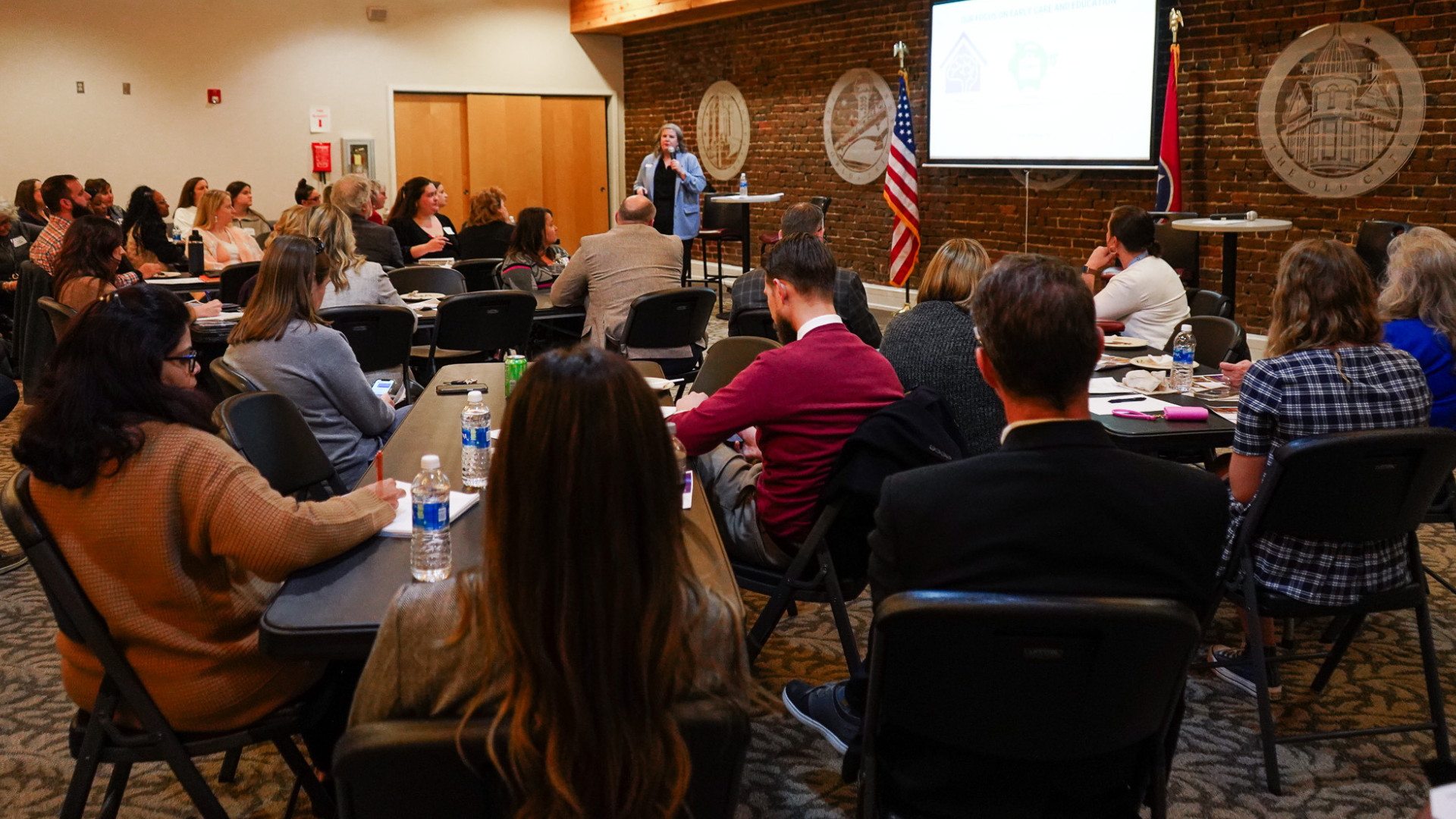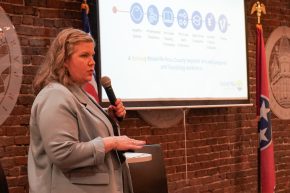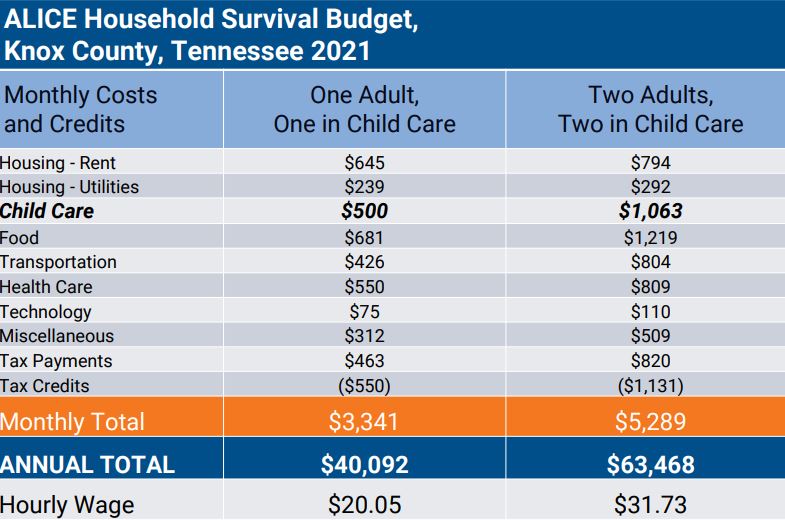
United Way breaks down how the childcare crisis affects local businesses
According to data collected by United Way, about 40 percent of working parents reported employment disruptions due to inadequate childcare.
Childcare, or the lack thereof, is becoming one of the biggest barriers to obtaining and retaining a good workforce in Knoxville. Dozens of business leaders from across the area attended a workshop at the Knoxville Chamber on Tuesday to learn about how to solve this critical shortfall.
Ellie Kittrell, Director of Early Care and Education Systems at United Way of Greater Knoxville, facilitated the discussion to foster collaboration between Knoxville entities on how to solve the crisis. She has spent countless hours working with childcare providers, community organizations, and businesses trying to find solutions.
Various news outlets in Knoxville have called the area a ‘Day Care Desert’ or have classified the lack of childcare as a ‘crisis’ situation, and they’re not wrong.
According to data collected by United Way, about 40 percent of working parents reported employment disruptions due to inadequate childcare. 27 percent turned down a job offer or promotion because of their childcare needs, and 18 percent either quit or were fired because of family priorities. Lastly, 16 percent of working parents left the workforce altogether as a result.
“These are valuable, skilled workers that we are losing in our workforce because they don’t have any other options,” Kittrell said.
To emphasize her point, Kittrell shared a graphic of something the United Way calls an ALICE budget. ALICE stands for “Asset Limited, Income Restrained, Employed.” These people are in the workforce full-time, yet still live paycheck to paycheck, and they don’t fall under the federal poverty level.

In 2021, to be considered living under the “federal poverty level,” a family of four would have to make less than $26,500.
In 2021, a family of two (one adult, one child) that qualified for ALICE in Knox County would make $40,090 and a family of four would bring home $63,468. There is a large gap between the families considered “federal poverty level” and families that are genuinely struggling paycheck to paycheck each month with no federal support.
According to United Way, 2.7 million Tennesseans (about 44 percent) had income below the ALICE threshold in 2021. An ALICE family of two in Knox County could afford $500 worth of childcare each month. An ALICE family with two adults and two children in care could afford $1,063 in childcare each month. That’s tough to find in Tennessee.
“If you are an employer with an employee who is also a parent of young children, you need to consider just how expensive childcare is in the area when you evaluate their wage,” Kittrell said.
The biggest value that workplaces can offer, according to Kittrell, is flexible work hours, compressed work weeks, or hybrid schedules to accommodate parents’ schedules. These are the most easily implemented changes when it comes to parents in the workforce.
 However, the option that United Way and other organizations are advocating for is on-site childcare facilities. This is where a business would convert a room in their building to a daycare area. Parents could drop their children off at the beginning of the workday and pick them up when it ends. Furthermore, with the child on site, this would allow parents to take lunch breaks or check on their young child periodically throughout the day.
However, the option that United Way and other organizations are advocating for is on-site childcare facilities. This is where a business would convert a room in their building to a daycare area. Parents could drop their children off at the beginning of the workday and pick them up when it ends. Furthermore, with the child on site, this would allow parents to take lunch breaks or check on their young child periodically throughout the day.
There is a new local example to draw upon. Sarah Moore Greene Elementary, with the help of the YMCA, has opened an on-site ‘micro-center’ to provide childcare services for children from infant age to preschool. It opened with the intent to help teachers and parents have a place to drop off their young children, so they can remain at work.
There are funding opportunities in place to incentivize this option at more businesses across the state. The Tennessee Department of Human Services currently offers Establishment Grants to help outfit the classroom with toys, books, furniture, and other materials. The grants are $1,000 per child (12 children = $12,000) and will go to the childcare provider. Other financial incentives or grants may also be available.
You can read this one-pager for more information.
Some other options Kittrell mentioned for businesses to consider were childcare reimbursement programs, extended parental leave policies, employee assistance programs, dependent care flexible spending accounts, and subsidized childcare services.
United Way believes investing in one or more of these childcare solutions will help obtain and retain valuable, skilled workers in Knoxville.
Like what you've read?
Forward to a friend!

